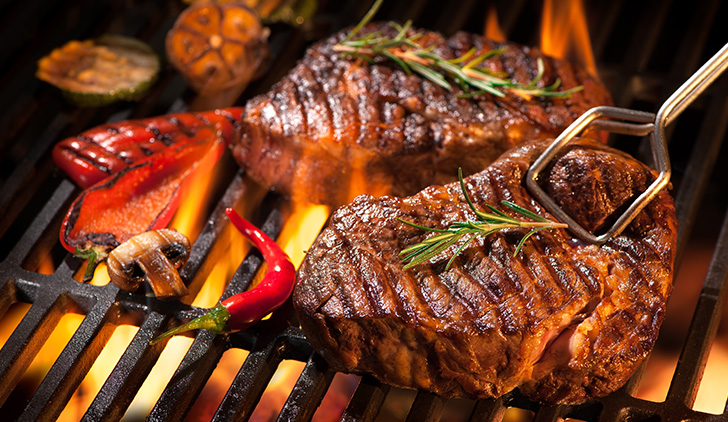
The National Fire Protection Association says that about 11,000 home fires happen each year because of grills, hibachis or barbecues. These fires cause close to $150 million in damage, along with injuries and deaths.
But don’t let those numbers scare you. Here are some safety tips you can use.
Using gas/propane and charcoal grills
Gas/propane and charcoal grills should only be used
- outdoors
- at least 3 feet away from your home, deck rails, children and pets and
- away from leaves and overhanging branches.
You should also avoid wearing clothes or jewelry that could get caught in the grill or catch fire. When using a gas/propane grill, check the gas hose for leaks and have it serviced by a professional at the start of each year. Remember to close the main valve when the grill is not in use.
For charcoal grills, use charcoal starter fluid. When you’re finished grilling, close the lid and wait 48 hours to ensure the charcoal and ashes are completely cooled. Then, wrap or place the ashes in a metal container before throwing them away.
Food safety in grilling
Apart from physical injury, food poisoning is another danger of grilling. According to the Centers for Disease Control and Prevention, there are around 48 million food poisoning cases each year. So, pay close attention to the temperature of your food before, during and after preparation.
- Keep meats and seafood in the refrigerator until you’re ready to put them on the grill.
- During transportation, make sure you keep your food below 40 F.
- When cooking, track the temperature of the meat using a thermometer:
- Beef, pork, lamb, veal and seafood should reach an internal temperature of 145 F to be considered safe to eat. Then, allow the meat to rest for 3 minutes before carving or eating.
- Hamburgers and other ground beef are considered safe when they reach 160 F.
- Poultry and precooked meats need to reach 165 F.
- For smokers, keep the heat between 225 F and 300 F while cooking.


